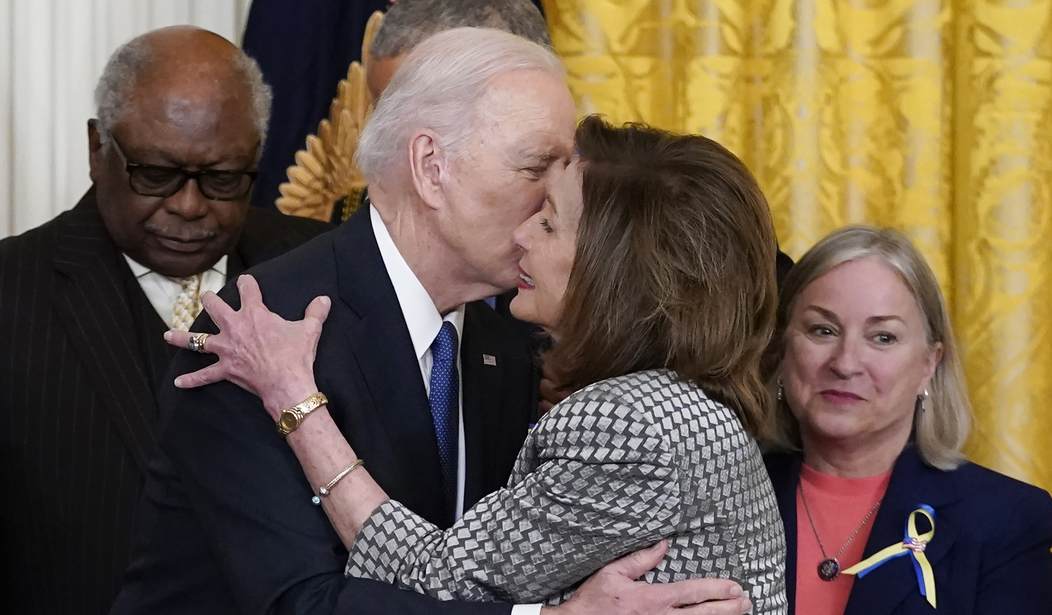The Beltway can mull lockdowns all they want, but no one’s returning to the spring of 2020 or the winter of 2021 ever again. Nevertheless, Politico reports that the Gridiron Dinner’s transformation into a superspreader event for COVID-19 among lawmakers has them wondering whether to push back against reopening efforts:
The speaker of the House is in quarantine. Cabinet secretaries are working from home. The Gridiron dinner was a superspreader event, and the West Wing is a hot spot.
The surge of Covid-19 infections in Washington this week has many wondering: Is it safe enough to hold indoor, public events again? Are we returning to normal or throwing caution to the wind after more than two years of isolation?
The answer, like much else throughout the coronavirus pandemic, is complicated because it depends on individuals’ personal risk thresholds. And no public outing bears zero risk — especially a formal event like the Gridiron dinner, held inside a hotel basement — with variants as transmissible as Omicron and its sibling, BA.2, circulating widely.
“A tuxedo does not prevent infection,” said William Schaffner, medical director of the National Foundation for Infectious Diseases and professor at Vanderbilt University School of Medicine.
Maybe the only question here would be whether to open karaoke bars again. A description of what went down at the Gridiron Dinner shows that Beltway officials couldn’t have spread viruses faster unless they played Spin the Bottle.
Uh … yeah, I don’t even want to think about that:
At the Gridiron dinner, attendees sat together in close proximity for hours, eating, drinking, talking over each other — even joining hands at the end to sing “Auld Lang Syne.”
That scenario means infected individuals were “releasing lots of virus into the air,” said Marr. “And … given that we’ve seen a lot of cases out of here, it’s likely the ventilation was not sufficient.”
Bear in mind that just a couple of months ago, most of these same lawmakers insisted that mask mandates needed to remain in place. Some of their allies still force toddlers to mask up in schools despite neither being at risk of nor vectors for COVID-19 transmission. The Gridiron Dinner was a great example of rules for thee but not for we elitism, and the outcome’s backfire seems more like karmic justice — as long as no one gets seriously ill.
And thus far no one has, thankfully. That in itself is a lesson we should heed, Leana Wen argues in today’s Washington Post. The Gridiron Dinner might be a cautionary tale in some aspects, but it also models what the post-pandemic, endemic phase of COVID-19 will be. We don’t need lockdowns or mandates any longer, Wen argues, but the same kind of common sense we apply to all viral respiratory infectious diseases:
Here’s what this would look like: If you chose to attend a large indoor gathering or are otherwise engaged in higher-risk activities such as frequenting crowded bars, take a test before visiting a nursing home or having dinner with an immunocompromised relative. If you have a newborn or live with someone who is particularly vulnerable, ask others to test before coming to you. To be extra safe, request that they reduce risky activities for three days, then test just prior to the visit.
If you are older or have medical problems that make you more susceptible to hospitalization from the coronavirus, have a plan for what happens if you get covid-19. Are you eligible for monoclonal antibodies and antiviral pills such as Paxlovid? Where can you access these treatments, including after hours and on weekends?
At this point in the pandemic, we have to accept that infections will keep occurring. During the winter omicron surge, almost half of Americans contracted the coronavirus. The new omicron subvariant, BA.2, is even more contagious than the original. The price to pay to avoid coronavirus infection is extremely high. Some Americans might choose to continue paying that price, but I suspect most won’t.
Accepting that coronavirus infections will be part of our lives doesn’t mean that we are giving up. Rather, it means acknowledging that we finally have the tools to take away most of the coronavirus’s terrifying consequences. Nearly all of us will contract covid-19. Let’s prepare for when we do and resume living our lives in the meantime.
Vaccinate. Prepare. Know your vulnerabilities and plan around them. Mask up if you become symptomatic and need to go out in public. And then once you’ve done that — or chosen not to do some or all on your own volition and in acceptance of the consequences — go out and live your life and don’t expect others to limit themselves on your behalf. The alternative is perpetual lockdowns and endless fear over whatever unknowns may yet come, an alternative with terrible consequences for mental and physical health all on their own. And that’s why no one’s having conversations about returns to mandates and lockdowns outside the Beltway.








Join the conversation as a VIP Member